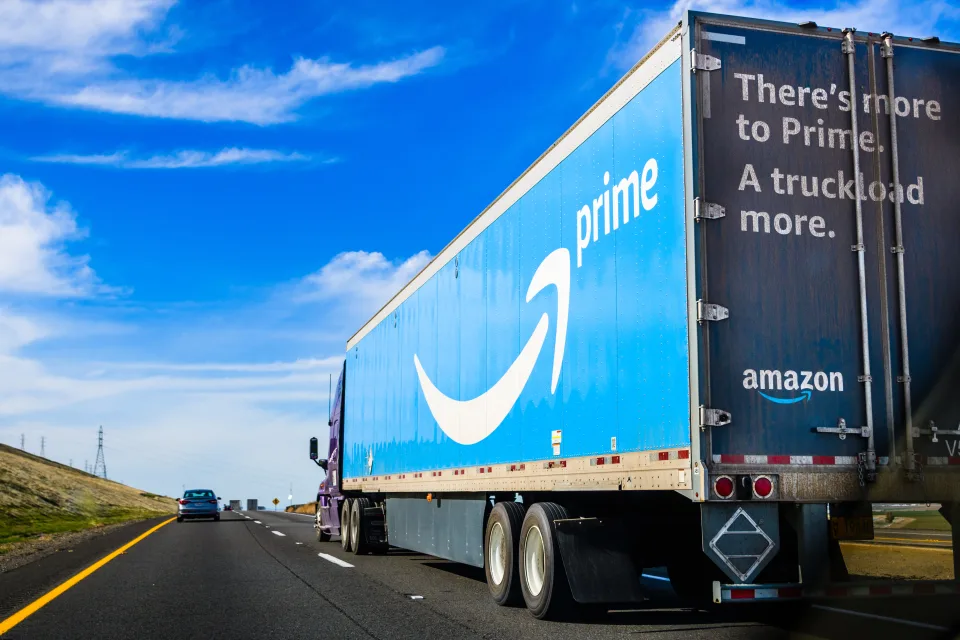The Federal Trade Commission alleged in a new lawsuit against Amazon (AMZN) that the retail giant duped consumers into joining as Prime subscription members and frustrated their attempts to cancel, the latest US crackdown on an American tech giant.
The case is the culmination of a two-year-long probe into Amazon’s efforts to methods to gain and retain Prime subscriptions, which currently cost members $139 per year or $14.99 per month in exchange for free shipping and other services.
It also follows a string of US legal and regulatory actions targeting the dominance of some of the tech world’s biggest names, from Alphabet’s Google (GOOG) and Microsoft (MSFT) to Meta (META) and Apple (APPL).
Some of these cases — which first gained steam in 2019 under the Trump administration and gathered more momentum under the Biden administration — revolve around the alleged threat these companies pose to fair competition.
The FTC, for example, is trying to stop Microsoft’s planned acquisition of “Call of Duty” gaming developer Activision Blizzard for that reason and convinced a federal court last week to block the deal temporarily.
Google also faces antitrust challenges on both sides of the Atlantic, including claims from the Justice Department that it illegally blocked competitors in the search advertising and online advertising technology markets.
The new FTC complaint against Amazon makes a different argument: that Amazon breached multiple consumer protection laws and that the court should issue an injunction to block its practices.
In response to the lawsuit, a spokesperson for Amazon said in a statement that the FTC’s claims are false on the facts and the law and expressed concern that the FTC announced the matter without giving Amazon prior notice.
The spokesperson said the suit was filed in the midst of Amazon’s discussions with agency staff members to ensure they understood the facts, context, and legal issues, and before the staff members could have a dialogue with FTC commissioners.
“The truth is that customers love Prime, and by design we make it clear and simple for customers to both sign up for or cancel their Prime membership,” the spokesperson said in the statement.
“As with all our products and services, we continually listen to customer feedback and look for ways to improve the customer experience, and we look forward to the facts becoming clear as this case plays out.”
During the afternoon trading session, shares of Amazon were roughly flat at $125, down less than 1% from the prior day’s close.
‘Iliad Flow’
The case revolves around Amazon’s Prime memberships, which fueled $25 billion of Amazon’s $514 billion in 2022 annual revenue.
According to a heavily redacted complaint filed in a federal district court in Washington, Amazon purposefully designed its Prime membership sign-up and cancellation processes to be “labyrinthine” to trick consumers into enrolling in automatically-renewing subscriptions and slow down their attempts to unsubscribe.
The cancellation process, according to the lawsuit, is known internally at the company as “Iliad Flow,” a reference to Homer’s epic poem that discusses the long, arduous Trojan War.
“[To] complete the Iliad Flow and cancel a Prime membership, the consumer needed to click a minimum of six times from Amazon.com,” the lawsuit alleges.
The FTC said Amazon simplified the process in April 2023, under pressure from the commission.
To lure in members, regulators contend that Amazon also purposely designed “dark pattern” web pages – manipulative design elements that trick users into making decisions they would not otherwise have made.
For example, the FTC says, Amazon buries disclosures about Prime’s auto-renewal feature so that consumers cannot view them without scrolling, and places a sign-up icon so close to an icon that reveals those disclosures that consumers unwittingly enroll.
“In each pathway, Amazon fails to provide clear and conspicuous disclosures regarding the Prime subscription program’s material terms: its price, and the fact that it renews automatically unless the consumer affirmatively cancels,” the complaint states.
The agency also accused Amazon of illegally frustrating consumers’ ability to sign up solely for its less expensive “Prime Video” subscription. Prior to June 2022, it said, Amazon capitalized on consumers’ inability to appreciate the difference between Prime Video and its marquee “Prime” service.
“These manipulative tactics harm consumers and law-abiding businesses alike,” FTC Chair Lina M. Khan said in a statement about the lawsuit.
In addition to injunctive relief, the FTC is asking for the court to impose fines and monetary damages against Amazon.
The Amazon spokesperson said “we look forward to proving our case in court.”

